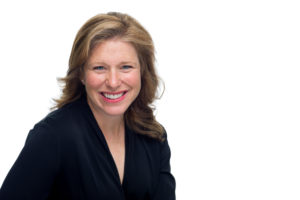Commentary on Parshat Naso (Numbers 4:21 – 7:89)
The priestly blessing (birkat ha’kohanim) featured in Parshat Naso is, perhaps, the most familiar passage in the Book of Numbers.
May God bless you and protect you!
May God deal kindly and graciously with you!
May God bestow divine favor upon you and grant you peace!
(Numbers 6:22-26)
To this day, these sacred words are regularly chanted in many synagogues by descendants of kohanim, rabbis, and cantors during specific prayers services or on the occasions of joyful lifecycle events. It is also customary for parents to offer this blessing to their children on Shabbat evening. In ancient times, blessing the people was among the chief duties of the priest. The Torah makes it clear, however, that while the priest may offer the blessing, the blessing itself comes from the Divine. The priest merely channels that blessing so that it might be felt and received by the people.
Sign up to receive Torah from T’ruah in your inbox each week.
But how does a priest come to bless? The Talmud requires that the priest say yet another blessing in preparation. “Blessed are You, Sovereign of the universe, who sanctified us with the holiness of Aaron and commanded us to bless God’s people with love.” (Sotah 39a) Why must the priests bless in love? Or to quote Tina Turner: “What’s love got to do with it?”
The rabbis imply that love and harmony must exist between the priests and the community to realize the potential for blessing; without such love, an emptiness stands between the people and their representative, making both the community and its “leader” incapable of receiving blessing (Be’er Heitev on the Shulkhan Arukh, Orakh Hayyim 128:11). These particular blessings must come from a place of deep and abiding love.
I recently participated in my final week-long silent retreat as part of the Institute for Jewish Spirituality’s Jewish Mindfulness Meditation Teacher Training program, in which we used this blessing as our core meditation practice. For a solid week, we focused on conditioning our consciousness for love: “May you feel safe. May you feel happy. May you feel at ease.” By repeating these words and other interpretative variations of the priestly blessing, we actively trained our minds to quiet our defenses, soften our harsh judgments, and orient ourselves towards compassion. In the release of each breath, we called upon our hearts to love freely and without constriction.
What does this practice have to do with social justice? Our wise teacher, Rabbi Sheila Peltz Weinberg, suggested that the circumstances of injustice, whether we find ourselves in the role of victim, perpetrator, or bystander, bring about great internal shame and confusion. It is only through love that this trauma can be overcome. Love frees us to heal our wounds and overcome our suffering, opening the path towards justice.
Find more commentaries on Parshat Naso
In 1985, a hospice volunteer named Ganga Stone paid a visit to an AIDS patient that changed her life. The patient, Richard Sale, was too ill to cook for himself. Ganga’s compassion took hold, she prepared a meal and delivered it on the next visit, and an epiphany was born: Something as basic as delivering a meal could bring dignity and recognition to a desperate situation. Ganga’s experience then drove her to a second epiphany. The severity of Richard’s situation demanded something more than simply delivering food. It required preparing nutritionally tailored meals that would support an individual’s specific medical treatment. She researched his needs and was on her way again, with a new meal in hand, when she was stopped by a minister in the neighborhood who recognized her. He asked what she was doing, she told him, and he replied, “You’re not just delivering food … you’re delivering God’s love.” And Ganga said, “That’s the name.” And God’s Love We Deliver was born.
 We have the capacity to deliver God’s love as well. My pursuit of social justice comes from a wish for compassion and lovingkindness towards all beings. One of the many ways I condition my heart for this work is through blessing. My ongoing spiritual transformation is inextricably linked to my pursuit for social transformation. Professor Cornel West famously teaches, “Never forget that justice is what love looks like in public.” May we cultivate our capacity to love so that we can bestow blessings and hasten the liberation of all beings.
We have the capacity to deliver God’s love as well. My pursuit of social justice comes from a wish for compassion and lovingkindness towards all beings. One of the many ways I condition my heart for this work is through blessing. My ongoing spiritual transformation is inextricably linked to my pursuit for social transformation. Professor Cornel West famously teaches, “Never forget that justice is what love looks like in public.” May we cultivate our capacity to love so that we can bestow blessings and hasten the liberation of all beings.
Rabbi Dr. Jenny Solomon is a spiritual leader at Beth Meyer Synagogue and founding director of Libi Eir Awakened Heart Community Mikveh in Raleigh, NC. She is a Wexner fellow, teacher of Jewish mindfulness meditation and mother to Meirav, Adi and Natan.

